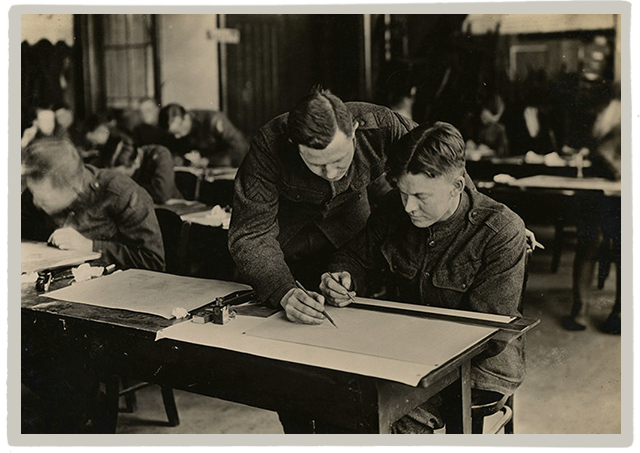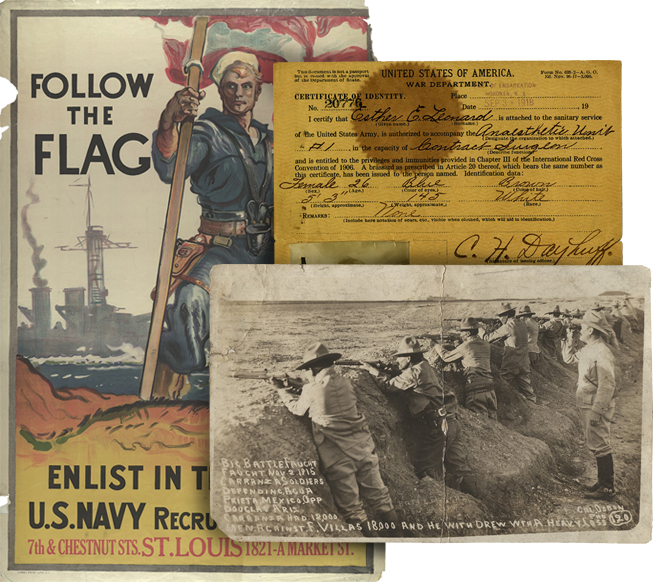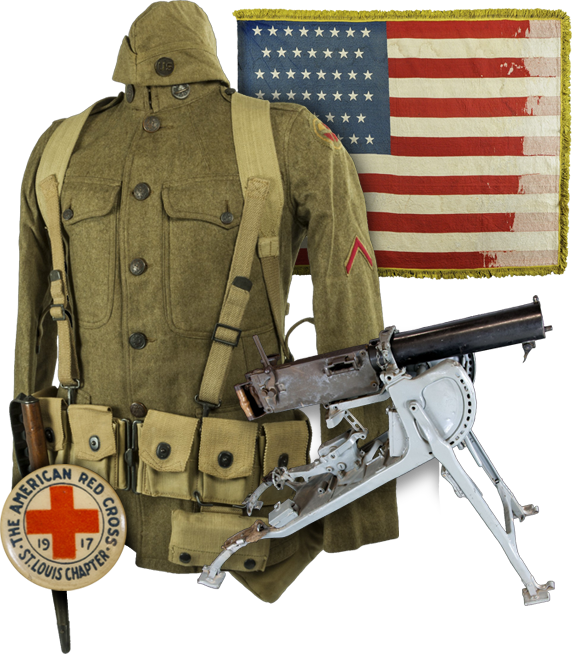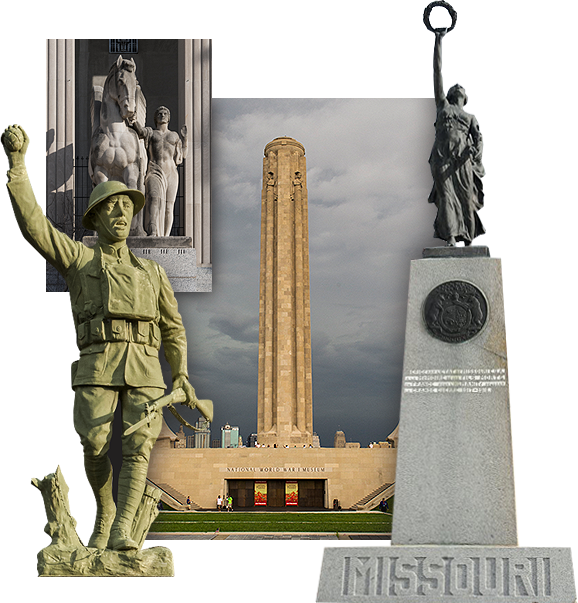Letter from Brigadier General William G. Haan to the Adjutant General - January 5, 1917

Transcript
HEADQUARTERS 32d DIVISION, NATIONAL GUARD, Camp MacArthur, Waco, Texas. January 5, 1917. From: Commanding General, 35d Division. To: The Adjutant General of the Army, Washington, D.C. Subject: Motor and animal transportation. 1. From information available, the most serious defects in the equipment of this Division pertain to transportation. The conditions following extract from a cablegram dated November 10th: "Cablegram 279, signed Pershing, follows: Paragraph 5 for the Chief of Staff request that all divisions and other units sent to France be completely equipped with authorized transportation, both mechanical driven and animal drawn, and organized before leaving the United States. Various division commanders temporarily in France state War Department *** all the motor transportation, wagon trains, harness, etc., will be furnished in France where their equipment is to be completed. So far this is not the case, therefore recommend that Chiefs of Staff departments and divisions and other commanders embarking for France be directed to complete the combat, field, supply, ammunition, sanitary, engineer trains before departure. If personnel of units be sent via England or Brest, France, necessitating sending transportation units via other bases it is very important the transportation arrive here before the troops so that the transport units completely organized with its personnel may be dispatched to billeting area to provide transportation facilities for the troops on their arrival. At the present time one division displacing in billeting area of some ten miles long by five miles wide, with one railhead in area has only two motor trucks available for its supply. French are helping out, but otherwise there would be a breakdown but their ability to assist is limited. Recommend all division and other commanders of units coming to Europe and the various staff officers be advised that organization and equipment of transportation units are vital to efficient operation. With reference to paragraph 3 my cablegram thirty: Again recommended that Division be assembled to or near Port of Embarkation in plenty of time to complete their organization and equipment before sailing. Subparagraph A: In case of artillery units, trench mortar batteries, etc., where armament is to be furnished on arrival of troops in France, it is equally important they be organized in United States and bring their animal or mechanical driven vehicles so that they may take up their training immediately on delivery of their armament. Subparagraph B: Recommend foregoing cablgrams be communicated to the various staff officers and commanding generals of divisions and other independent units awaiting transportation to Europe."

Transcript
[page 2] 2. Insofar as plans for this Division have been received, practically none of the above reported deficiencies have been corrected as will be seen from the following: The Liaison Officer of this Division at Port of Embarkation, under date of December 29th, wired as follows: "Every division has been supplied at Port of Embarkation with 100 trucks, 800 trucks on hand here. Advise request by Division Commander that 100 trucks be assigned 32d Division at Port of Embarkation." I accordingly wired The Adjutant General, under date of December 30th, as follows: "Liaison Officer this Division at Port of Embarkation reports large number of trucks there. Request that not less than 100 trucks be assigned definitely to this Division and sent with or in advance of the troops." On January 2d the following reply was received from The Adjutant General: "Trucks now waiting transportation at Ports of Embarkation are assigned to Divisions already overseas. Your Division will be supplied in regular order. However, 35 automobiles now at Port of Embarkation assigned to 33rd Division have been ordered transferred to your Division." Telegraphic instructions were received from The Adjutant General's Office under date of December 29th, directing that the animals of this division, except those for the Engineer Train and Field Signal Battalion, be left "in charge of necessary personnel ** at Remount Depot pertaining to your Division." In letter from The Adjutant General's Office, October 5th, signed "Learnard", we were advised that "lead mules of four mule teams will not be taken to France, but that two lead mules will be sent for each 2-mule cart and one lead mule for each 1-mule cart." This indorsement was referred to 32d Division by The Adjutant General's Office, December 18, 1917, 454.22 (Miscl.), "Attention being invited to 2nd indorsement hereon", signed "R. R. Harper". It was neither approved nor disapproved. 3. The situation so far as present information is available, appears to be as follows: (a) No motor truck transportation at all is available now for 32d division. (b) Animals except a few are ordered left in camp here instead of being sent in advance of the troops as recommended emphatically by the Commander-in-Chief, American Expeditionary Forces in France. This does not appeal to me as an encouraging situation, and I recommend that the matter be laid before those War Department authorities who are responsible for the policy in these matters. In this connection I think the following instructions to Division Commanders in War Department letter of December 5, 1917, should also be considered: "The Secretary of War desires me to state that recently several organizations have been reported as fully equipped and prepared for duty overseas. Such organizations have been reported as ready to the Chief of

Transcript
[page 3] Embarkation and later, when orders were received to move them to the Port of Embarkation, and in one case to actually place such organizations on vessels, report has been received that the organizations were not fully equipped. These incorrect reports interfere greatly with the duties required at the Port of Embarkation and may, if not corrected, result in holding up the sailing of vessels, or in their sailing without full passenger lists. If it is not definitely known that organizations are ready for overseas service, they should not be reported as ready. H. G. Learnard, Adjutant General." W. G. Haan, Brigadier General, National Army, WHH-g jc
Details
| Title | Letter from Brigadier General William G. Haan to the Adjutant General - January 5, 1917 |
| Creator | Haan, William George |
| Source | Haan, William George. Letter to Adjutant General. 05 January 1917. Crowder, Enoch H. (1859-1932), Papers, 1884-1942. C1046. The State Historical Society of Missouri, Columbia, MO. |
| Description | In this January 5, 1917 letter to the Adjutant General, Brigadier General W. G. Haan discussed supplying transportation for the 32nd Division, and cited a cablegram from General John J. Pershing. This letter is part of a collection compiled by Enoch Herbert Crowder, the Edinburg, Grundy County, Missouri native who served as Judge Advocate General. Crowder devised the Selective Service Act in 1917 which drafted America's forces during World War I. |
| Subject LCSH | Crowder, E. H. (Enoch Herbert), 1859-1932; United States. Army. Division, 32nd; World War, 1914-1918--Transportation; Pershing, John J. (John Joseph), 1860-1948; Haan, William George, 1863-1924; World War, 1914-1918--Animals; Mules |
| Subject Local | WWI; World War I |
| Site Accession Number | C1046 |
| Contributing Institution | The State Historical Society of Missouri |
| Copy Request | Transmission or reproduction of items on these pages beyond that allowed by fair use requires the written permission of the State Historical Society of Missouri: 1020 Lowry Street, Columbia, Missouri, 65201-7298. (573) 882-7083. |
| Rights | The text and images contained in this collection are intended for research and educational use only. Duplication of any of these images for commercial use without express written consent is expressly prohibited. |
| Date Original | January 5, 1917 |
| Language | English |



